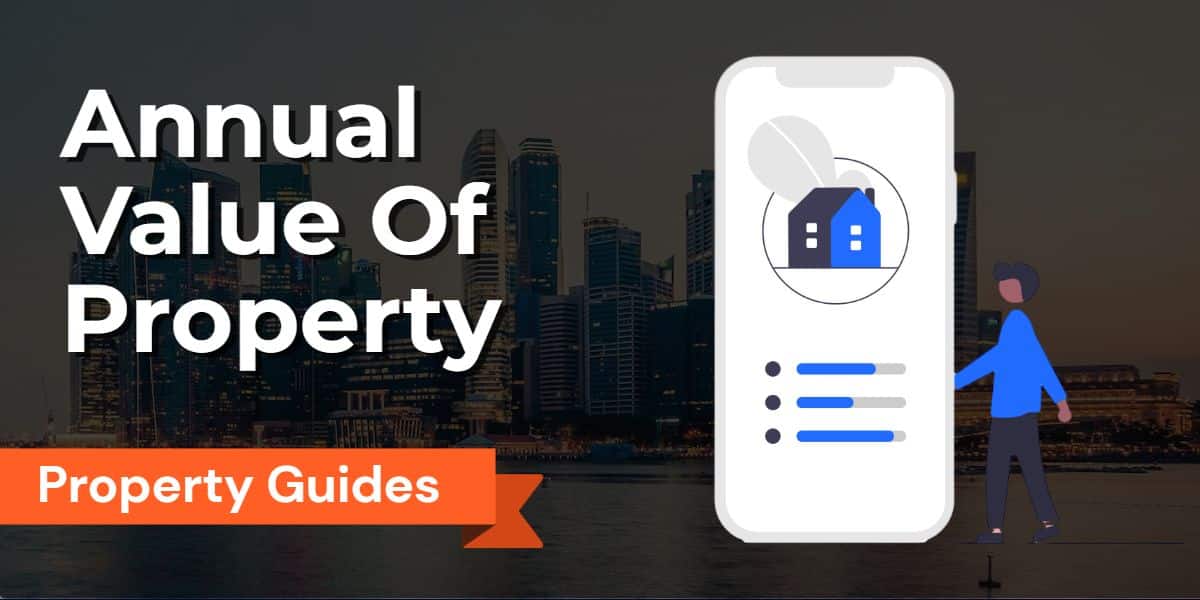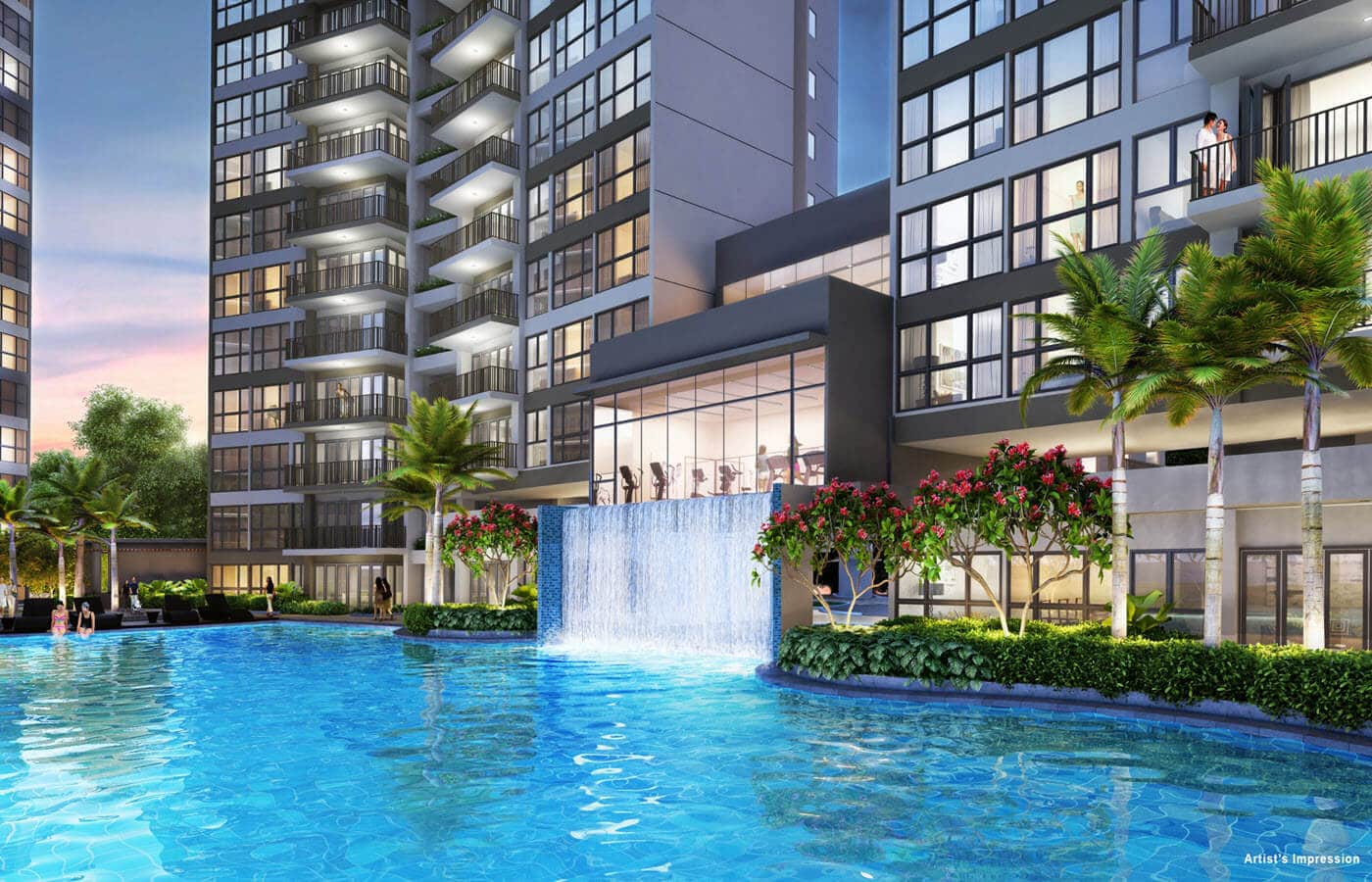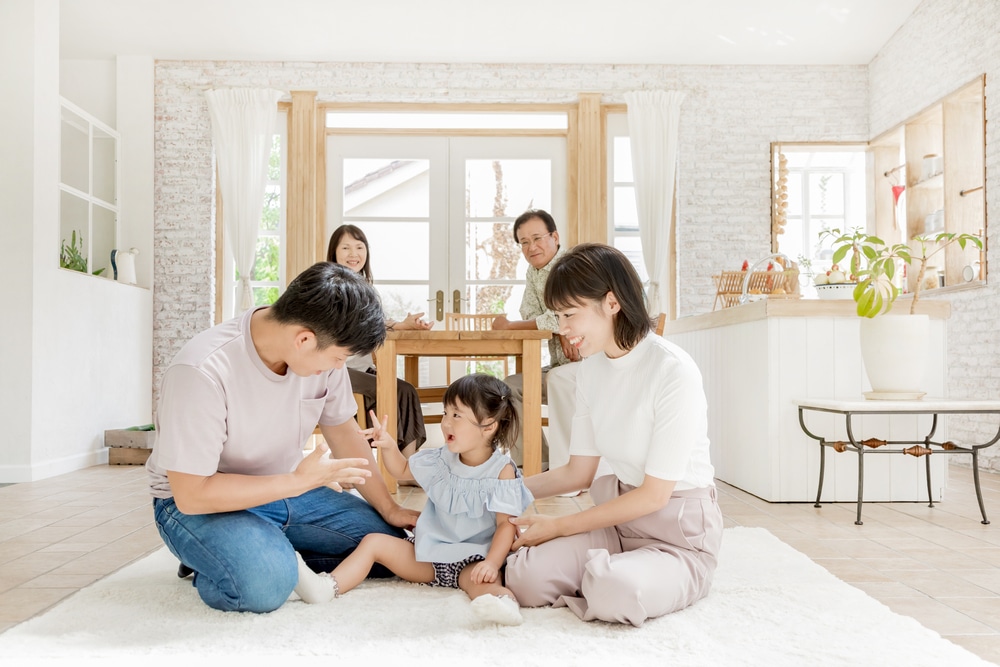
Discover the Married Child Priority Scheme (MCPS) and the Multi-Generation Priority Scheme (MGPS), designed to prioritize housing for these specific needs.
These schemes offer additional ballot chances, and flexible housing options, and promote stronger family ties.
In this article, we’ll explore the benefits, eligibility criteria, and application process of these priority schemes, helping you understand how they can enhance your housing journey.
Key Takeaways
| Key Takeaway | Article |
|---|---|
| Married Child Priority Scheme (MCPS) | MCPS is designed for applicants who want to live with or near their parents or married children. It provides priority in the allocation of HDB flats and an additional ballot chance for eligible applicants. |
| Multi-Generation Priority Scheme (MGPS) | MGPS is for larger families who want to live together and provides priority for the purchase of larger flats. It grants additional ballot chances and reduces the Minimum Occupation Period (MOP) for eligible applicants. |
| Parenthood Priority Scheme (PPS) | PPS gives priority to first-time married couples who want to start a family and own a flat. It also supports adoption and legal custody of children. Eligible applicants have an additional ballot chance. |
| Third Child Priority Scheme | This scheme supports larger families with three or more children, providing them with priority in the allocation of HDB flats. It ensures access to larger flats and increases chances of securing a flat. |
| Eligibility for MCPS | MCPS is open to married children applying for a new flat. At least one applicant must own an existing HDB flat and be within three kilometers of the parents or married child. They must not have enjoyed priority schemes in the past. |
| Application Process for MCPS and BTO Flats | Applicants can submit their MCPS application together with their BTO application online. Successful MCPS applicants have priority in the allocation of flats. |
| Factors Affecting Ballot Chances under MCPS | Factors include legal marriage, natural offspring, proximity of parents, widowed parents, second-timer families, and elderly applicants. These factors impact the chances of obtaining a flat. |
| Benefits of Living Near Parents through MCPS | MCPS offers flexible housing options, pre-identified flats, and the opportunity to live close to parents. This promotes family support and provides suitable housing options. |
| BTO Flats: Ideal Choice for Married Child Households | BTO flats are designed for first-time applicants and offer flexible housing options, priority ballot chances, and affordability. They are suitable for married couples and families. |
| Understanding Ballot Chance and Luck | Ballot chances are determined by factors such as legal marriage, natural offspring, proximity, and age/marital status. The time of application and application process also influence chances. |
| Parenthood Priority Scheme (PPS) Advantages | PPS provides additional advantages for couples with children, giving them priority in flat allocation. PPS applicants have higher chances of obtaining a flat in new BTO projects. |
| Considerations for MCPS Applicants | MCPS is for couples applying for BTO flats with citizen children. It offers priority selection over other applicants but does not provide an advantage for non-mature estates. |
| MCPS and Flat Selection in Mature and Non-Mature Estates | MCPS applicants have priority in selecting flats in mature estates. However, MCPS does not provide an advantage for balloting for flats in non-mature estates. |
Introduction to the Married Child Priority Scheme (MCPS)

What is the Married Child Priority Scheme?
The Married Child Priority Scheme (MCPS) is designed for applicants who wish to live with or near their parents or married children.
Eligible applicants under this scheme are set aside a fixed quota of flats in non-mature estates for purchase.
The scheme provides married children with priority in the allocation of HDB flats, helping them to stay close to their parents and foster stronger family ties.
This scheme is also known as the “Assistance Scheme for Second-Timers” as applicants who are eligible for MCPS are likely to have purchased a flat from HDB before and require assistance in securing a new flat.
What are the benefits of the Married Child Priority Scheme?
One of the key benefits of MCPS is that eligible applicants have an additional ballot chance to secure a flat.
This means that they have a higher chance of being allocated a unit during the flat application exercise.
Additionally, MCPS takes into account the needs of parents or married children who require flats that are close to each other.
By staying closer to each other, family members can look out for one another and the elderly members of the family can receive care and support more easily.
Who is eligible for the Married Child Priority Scheme?
MCPS is open to married children who are applying for a new flat.
To be eligible under this scheme, at least one of the applicants must be a parent or married child who owns an existing HDB flat.
The applicant(s) who are applying for a new flat must be within three-kilometer radius or the same town as the parents or married child and must not have enjoyed priority schemes in the past.
Exploring the Multi-Generation Priority Scheme (MGPS) and Its Benefits
What is the Multi-Generation Priority Scheme?
The Multi-Generation Priority Scheme (MGPS) is designed for larger families who wish to live together to provide mutual support and care.
This scheme provides priority for the purchase of larger flats, such as 3-room flats and above, for multi-generation families.
The scheme is also open to non-traditional families, such as single parents and their children, who have a strong support network and wish to live together.
How does the Multi-Generation Priority Scheme
work?
The MGPS works by granting eligible applicants an additional ballot chance for the purchase of a flat.
In addition, applicants under MGPS are only required to fulfil 50% of the prevailing Minimum Occupation Period (MOP) for their HDB flat before they can sell it in the open market.
This means that if the prevailing MOP is five years, applicants under MGPS will only need to fulfil two-and-a-half years of the MOP before they can sell their flat.
What are the benefits of the Multi-Generation
Priority Scheme?
One of the key benefits of MGPS is that it promotes multi-generation living, which can provide emotional and practical support to family members.
It also strengthens family bonds and helps parents to share their experience and knowledge in raising their children.
Additionally, by reducing the MOP, applicants under this scheme have greater flexibility and are able to own a different type of residential property sooner than if they were not eligible for MGPS.
Understanding the Parenthood Priority Scheme (PPS) and Its Relevance

What is the Parenthood Priority Scheme?
The Parenthood Priority Scheme (PPS) is designed to provide priority to first-timer married couples who want to start a family and own a flat.
This scheme also supports adoption and the legal custody of children by granting eligibility to parents who are legally adopting a child or have legal custody of a child.
The PPS is triggered automatically when the child is born or the legal custody order is granted.
How does the Parenthood Priority Scheme work?
The PPS works by granting eligible applicants an additional ballot chance for the purchase of a flat.
In addition, applicants under PPS are set aside a fixed quota of flats in non-mature estates for purchase.
This scheme also provides priority for the purchase of larger flats, such as 3-room flats and above, to cater to the needs of growing families.
Who is eligible for the Parenthood Priority Scheme?
To be eligible under the PPS scheme, at least one of the applicants must be a Singapore Citizen (SC) or Permanent Resident (PR) and meet the prevailing eligibility conditions for first-timer families.
Applicants must also be within the specified income ceiling and have not enjoyed priority schemes in the past.
The Third Child Priority Scheme: Enhancing Support for Larger Families
What is the Third Child Priority Scheme?
The Third Child Priority Scheme is designed to support larger families with three or more children and provide them with priority in the allocation of HDB flats.
This scheme provides larger families with an additional ballot chance for the purchase of a flat and ensures that they have access to larger flats that meet their housing needs.
What are the benefits of the Third Child Priority Scheme?
One of the key benefits of the Third Child Priority Scheme is that it ensures that larger families have access to affordable housing options that meet their needs.
It also promotes familial support and strengthens family values by helping parents to support their children as they grow up.
Additionally, by granting additional ballot chances for the purchase of a flat, this scheme also increases the chances of larger families in securing a flat.
How does the Third Child Priority Scheme work?
The Third Child Priority Scheme works by granting eligible larger families an additional ballot chance for the purchase of a flat.
To be eligible for this scheme, families must have three or more children under the age of 18 and at least one of the parents must be a Singapore Citizen (SC).
Applicants must also meet the prevailing eligibility conditions for first-timer families and have not enjoyed priority schemes in the past.
Eligibility Criteria for the Married Child Priority Scheme
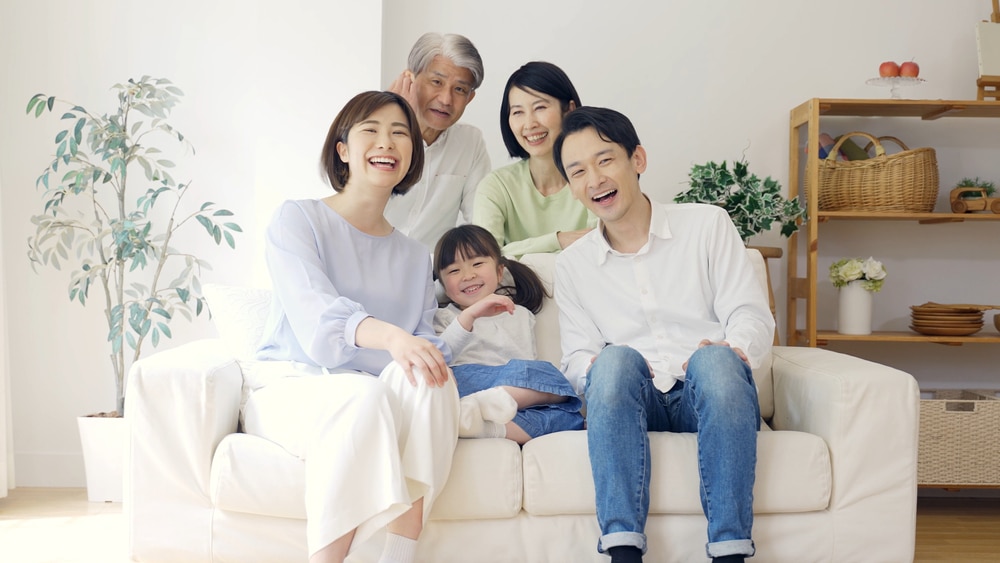
Who is considered a “Married Child” for the Married Child
Priority Scheme?
A “Married Child” for the purpose of the Married Child Priority Scheme refers to a child who is legally married and whose parents are living in an HDB flat, a private residential property or a non-landed property in Singapore.
The child must be applying for a new flat and is seeking to live near or with their parents.
What are the eligibility criteria for the Married Child Priority
Scheme?
To be eligible for the MCPS scheme, applicants must be Singapore citizens or permanent residents and fulfil the prevailing eligibility conditions for first-timer applicants.
In addition, a “Married Child” applicant must have a parent or married child living in the same town or within a three-kilometer radius of the intended flat application.
Applicants must also not have enjoyed priority schemes in the past and meet the prevailing income ceiling.
How is the Married Child Priority Scheme ballot chance
calculated?
The Married Child Priority Scheme ballot chance is calculated based on the prevailing quota set aside for MCPS applicants for each project launch.
The ballot chance is determined by the ratio of the number of available units set aside for MCPS applicants to the total number of MCPS applicants who have submitted an application for that particular flat application exercise.
The higher the ratio, the higher the MCPS ballot chance.
What is the Married Child Priority Scheme and How to Apply?
Application Process for MCPS and BTO Flats
The MCPS is a priority scheme that allows married children to live close to their parents.
To be eligible for MCPS, the following criteria must be met: the child must be a Singapore citizen aged 21 and above, the parents must be Singapore citizens or permanent residents, and the parents must be currently living in an HDB flat.
Applicants can submit their application for MCPS together with their BTO application.
To apply for MCPS and a BTO flat, applicants must first check their eligibility for both schemes.
If they meet the criteria, they can submit their application online during the BTO sales exercise periods.
During the application process, applicants will be required to indicate their preference for MCPS.
Successful MCPS applicants will be given priority when it comes to ballot chances, increasing their chances of obtaining a BTO flat quickly.
Joint Application for MCPS
One of the benefits of MCPS is the ability to submit a joint application with your spouse.
This means that both you and your spouse can apply for MCPS and BTO flats together, increasing your chances of success.
The joint application process is straightforward and can be done easily online.
Categories of Public and Private Property
It is important to note that the MCPS scheme only applies to HDB flats, and not private property.
Applicants who wish to purchase private property will need to do so separately, outside of the MCPS scheme.
That being said, there are a range of different property categories available for public applicants, with each category having its own eligibility criteria and benefits.
Factors Affecting Ballot Chances under MCPS
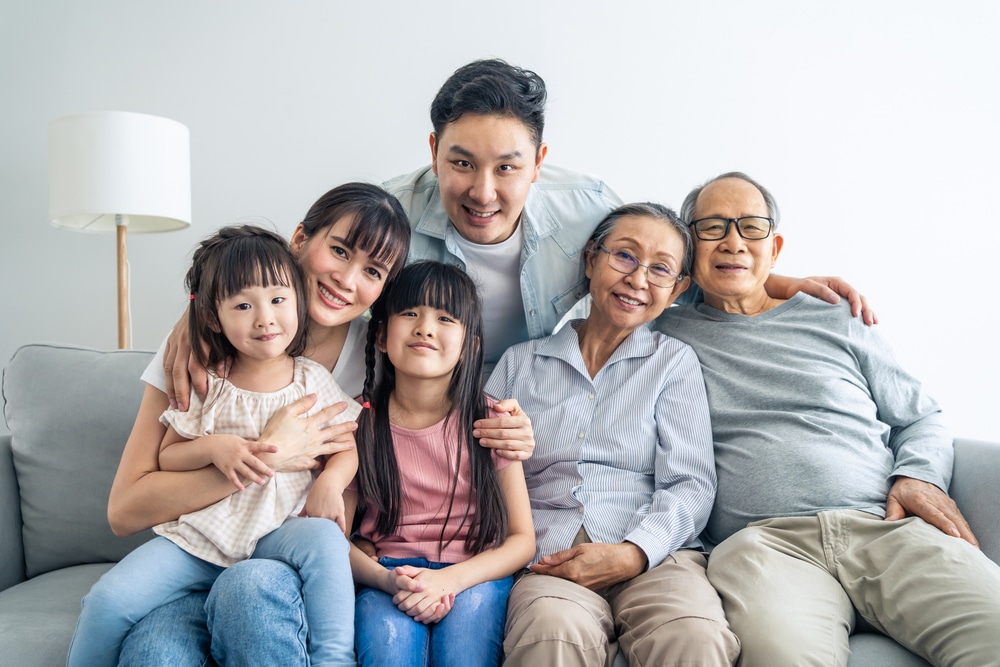
Legal Marriage and Natural Offspring
One of the key factors that affects ballot chances under MCPS is legal marriage and natural offspring.
According to HDB guidelines, priority for MCPS is given to married couples with children, as they require more living space than single applicants.
Widowed Parents and Proximity Reference
Another factor affecting ballot chances is widowed parents or proximity reference.
Applicants who have widowed parents living in the same neighbourhood, or within a certain distance, will also be given priority.
This is especially important for parents who require more care and attention due to age or health-related conditions.
Second-Timer Families and Elderly Applicants
Finally, second-timer families and elderly applicants are also given priority when it comes to ballot chances.
This is to ensure that everyone has an equal chance of obtaining a flat, regardless of their age or marital status.
Benefits of Living Near Your Parents through MCPS
Flexible Housing Options: 2-room Flexi Flats under MCPS
One of the main benefits of MCPS is the flexible housing options it offers.
Eligible MCPS applicants can opt for a range of different flat sizes, from 2-room flexi to 3-room flats.
This flexibility allows married children to find a flat that is suitable for their family’s needs and requirements.
Exploring the 2-room Flexi or 3-room Flats
For those who require a smaller living space, the 2-room flexi flat is an ideal choice.
These flats are designed specifically for elderly or single applicants, and are available in two different sizes: 36 and 45 square metres.
Alternatively, for those who require more space, the 3-room flat is also available.
Pre-Identified Flats for MCPS Applicants
MCPS applicants also have the advantage of having pre-identified flats set aside for them.
This means that applicants can avoid the hassle of having to search for a flat themselves, and can instead choose from a range of flats that have been pre-approved by HDB.
HDB BTO Flats: An Ideal Choice for Married Child Households
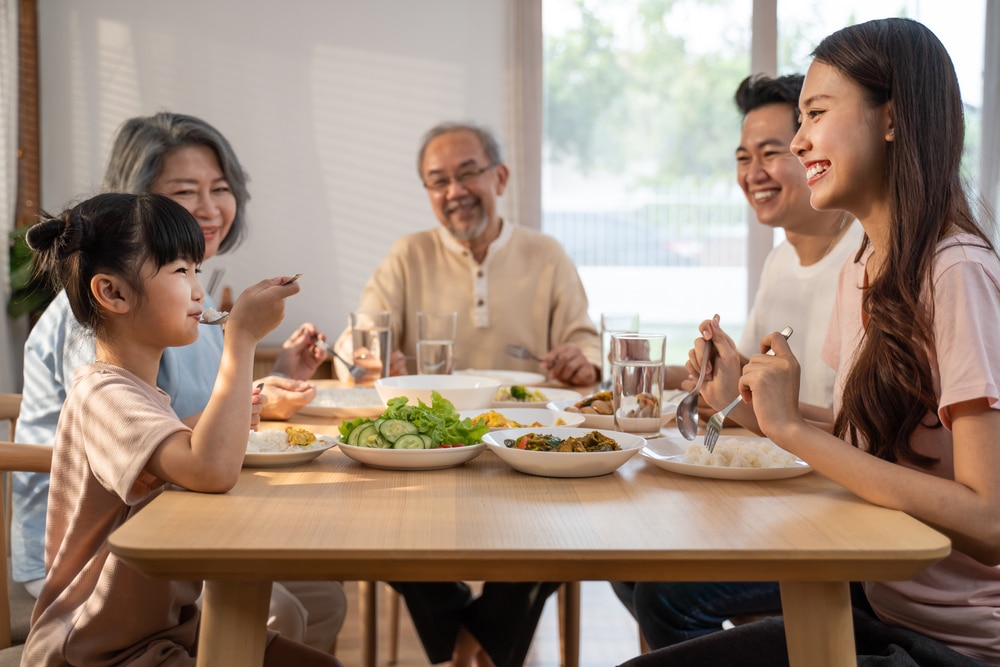
First-Time Applicants for BTO Flats
For those who are purchasing their first home, a BTO flat is often the ideal choice.
BTO flats are designed specifically for first-time applicants, and are available in a range of different sizes and designs.
They are also affordable, making it easier for applicants to purchase their first home without having to worry about high prices or expensive mortgages.
Married Applicants for BTO Flats
For married applicants, BTO flats are also an ideal choice.
Not only do they provide a range of flexible housing options, but they also come with a range of different benefits, such as priority ballot chances and pre-identified flats.
This makes it easier for married couples to purchase a home quickly and easily, without having to wait for long periods of time.
Sales Launches and Flat Allocation
Finally, it is important to note that BTO flats are allocated on a first-come, first-served basis.
This means that it is important to submit your BTO application as early as possible, in order to increase your chances of obtaining a flat in your preferred location.
Additionally, sales launches are typically held every few months, so applicants should keep an eye out for upcoming launches and apply as soon as possible.
Understanding the Ballot Chance and Luck
Factors that Determine Ballot Chances under MCPS
When it comes to MCPS and BTO flats, ballot chances are determined by a range of different factors.
Some of the key factors that affect your chances of obtaining a flat include your legal marriage status, the number of natural offspring you have, the proximity of your parents, and your age or marital status.
Selective En bloc Redevelopment Scheme (SERS) and HDB
BTO 2-room Flexi Flats
Additionally, applicants should also be aware of the Selective En bloc Redevelopment Scheme (SERS).
Under this scheme, eligible 2-room flexi flats that are affected by a redevelopment project may be offered a replacement flat, subject to certain conditions.
This can be a great option for those who are looking for a long-term housing solution and want to ensure that they are fully prepared for any possible changes or redevelopment projects in the area.
Application Process and Time of Application
Finally, your chances of obtaining a flat will also depend on the time of your application and the application process itself.
Applications that are submitted early during a sales launch may have a higher chance of success, as there will be more flats available to choose from.
Additionally, applicants who submit their application online and complete all the necessary paperwork in a timely manner are more likely to be successful.
Parenthood Priority Scheme (PPS): Additional advantages for couples with children

Who are eligible for PPS?
The Parenthood Priority Scheme (PPS) is aimed at providing additional advantages for couples with children.
To be eligible for this scheme, at least one of the applicants must be a Singapore citizen, and they must have a child who is either aged 20 or below, or is not yet born.
What are the benefits of PPS?
Applicants who qualify for PPS get priority over other applicants, except for those who are eligible for other priority schemes like the MCPS or the Third Child Priority Scheme (TCPS).
Additionally, PPS applicants enjoy higher chances of getting a flat in new BTO projects than first-timer or second-timer applicants who are not under any priority scheme.
How does PPS impact flat selection?
PPS applicants are given priority during the flat allocation exercise.
They can choose their flats before other first-timer, second-timer and Enhanced CPF Housing Grant (EHG) applicants.
However, applicants under MCPS and TCPS have a higher priority than PPS applicants during the selection process.
Considerations for couples applying for BTO flats under MCPS
What is MCPS?
The Married Child Priority Scheme (MCPS) is a priority scheme that offers certain advantages for couples who are applying for BTO flats and who have citizens as their children.
Who can apply under MCPS?
Applicants who can apply under MCPS include: – Citizen child of the applicant(s) – Adoptive parents of a citizen child – First-timer couples applying for a BTO with a citizen child.
How does MCPS differ from other priority schemes?
Compared to other priority schemes, MCPS gives the highest priority.
MCPS applicants can choose their flats before other priority scheme applicants, including those under PPS and TCPS.
However, MCPS does not offer any advantage for balloting for a flat under a non-mature estate.
MCPS and its impact on flat selection in mature and non-mature estates
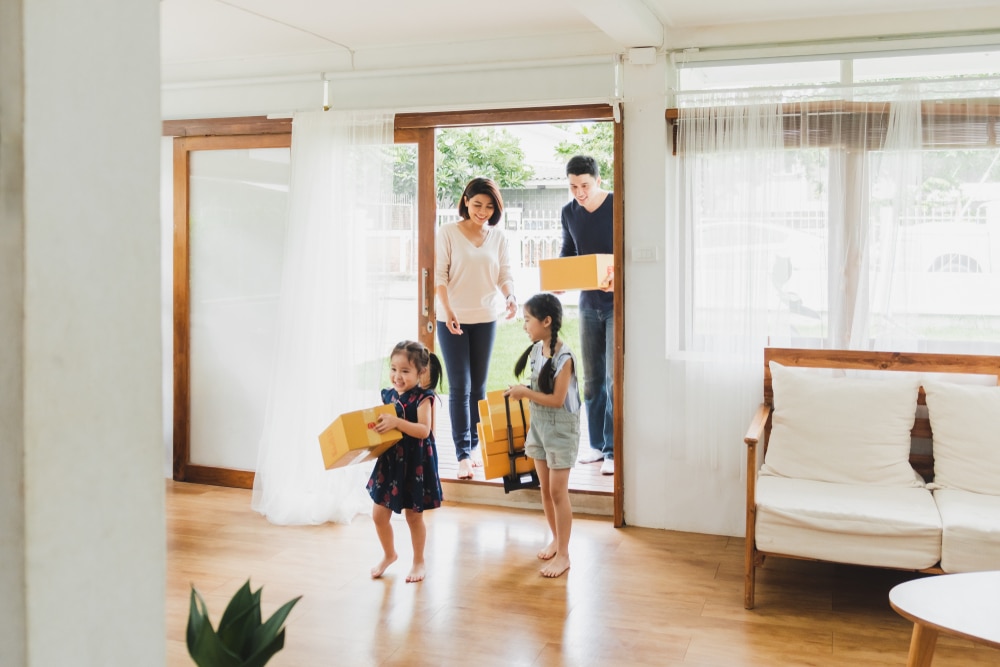
What are mature and non-mature estates?
Mature estates are areas that have been developed for more than 20 years and have established amenities such as hospitals, schools, shopping malls and parks.
Non-mature estates, on the other hand, are newly developed areas with a less developed infrastructure.
How does MCPS affect flat selection in these estates?
In mature estates, MCPS applicants have the first priority for BTO flats.
In non-mature estates, MCPS applicants are given the first priority for 3-room BTO flats and then second priority for 4-room and smaller BTO flats.
MCPS applicants who are unsuccessful in selecting a flat in their preferred non-mature estate BTO project can switch to a non-mature estate which has a lower demand.
What should couples consider when choosing between the
two?
When considering selecting between mature and non-mature estates, couples should consider the amenities around their preferred location, the pricing of the flats, their work location and accessibility to public transport.
Senior Priority Scheme (SPS): Assisting elderly applicants under MCPS
What is SPS?
The Senior Priority Scheme (SPS) is a priority scheme designed to help elderly residents who are MCPS applicants to secure a flat.
Who can apply under SPS?
Applicants who can apply for SPS include: – Married couples or singles above 55 years old – Married couples with at least one spouse above 55 years old and is also a Singapore citizen – Only one applicant can apply for SPS and have accesses to these benefits
How does SPS increase the chances of getting a flat?
Under SPS, 95% of 2-room or 3-room flats are set aside for elderly applicants under MCPS.
After elderly residents have selected their flats under this scheme, the remaining 5% of flats are open for other applicants to ballot.
Assistance schemes for second-timers applying under MCPS

Who are second-timer applicants?
Second-timer applicants are those who have owned a flat or have enjoyed a housing subsidy previously, and are now applying for a second flat.
What are the assistance schemes available for them?
There are several assistance schemes available for second-timer applicants, including the Enhanced CPF Housing Grant (EHG), which offers up to $80,000, the Proximity Housing Grant (PHG), which offers up to $30,000, and the Staggered Downpayment Scheme, which allows applicants to pay their downpayment in two installments.
How do these schemes help second-timer applicants?
Assistance schemes such as EHG and PHG are aimed at helping second-timer applicants to purchase a home closer to or with their loved ones, thus facilitating inter-generation bonding.
In conclusion, priority schemes that can improve your chances of getting an HDB BTO flat include MCPS, PPS, TCPS, SPS, and other priority schemes.
Before applying, it’s advisable to research and evaluate all the available options.
You can find more information about the various priority schemes on HDB’s official website links.
Conclusion
In conclusion, the Married Child Priority Scheme (MCPS) is a beneficial scheme that provides priority in the allocation of HDB flats to married children who wish to live with or near their parents.
MCPS offers several advantages, including an additional ballot chance, the ability to stay closer to family members, and fostering stronger family ties.
It is important to note that MCPS is just one of several priority schemes available, each catering to different family situations and needs.
To further explore the various priority schemes offered by HDB, readers are encouraged to check out our other blog articles.
These articles delve into schemes such as the Multi-Generation Priority Scheme (MGPS), Parenthood Priority Scheme (PPS), and Third Child Priority Scheme (TCPS).
Each scheme provides unique benefits and eligibility criteria to support different family dynamics and ensure a suitable housing solution.
Whether you are a married child looking to live near your parents, a larger multi-generation family seeking mutual support, or a couple starting a family, understanding the available priority schemes can greatly enhance your chances of securing a suitable HDB flat.
By familiarizing yourself with the eligibility criteria and benefits of each scheme, you can make an informed decision and navigate the application process with confidence.
Take the next step in your housing journey by exploring our other blog articles on priority schemes.
Each scheme offers its own advantages and considerations, ensuring that there is an option available to meet your specific needs.
Frequently Asked Questions
What is the married child priority scheme for HDB flats?
The married child priority scheme is a priority scheme for purchasing a new Build-to-Order (BTO) or Sale of Balance Flats (SBF) flat under Housing & Development Board (HDB) for married children of first-timer parents.
How does the married child priority scheme work?
The scheme gives priority to buying a flat to eligible first-timer married children of first-timer parents without subsidies, before the balloting process for other applicants starts.
Additionally, qualified applicants also get two chances in the balloting process.
What are the eligibility factors for the married child priority scheme?
To be eligible for the scheme, the applicant must be a Singapore citizen, married, and a first-timer applicant with at least one parent who is also a first-timer applicant.
Furthermore, the applicant’s family nucleus must be listed as either a fiancé/fiancée or spouse, with each spouse having no more than one living parent or grandparent in any HDB flat or private property.
Are there any additional chances given with the scheme?
Yes, eligible applicants get two chances in balloting.
One additional chance is given to first-timer parents when applying with a married child buying a BTO flat in the same estate or within 2 km.
Is the married child priority scheme a game of chance?
Yes, it is.
Eligible first-timer married children will still have to participate in the balloting process along with other applicants.
However, they will be given priority in the queue if ballot chances still exist.
What happens if the parents of the applicant get divorced?
If the parents of the applicant are divorced or separated, only the parent with care and control or heavy responsibility of the applicant can apply under the scheme.
A divorce certificate must be provided.
Is the loan eligibility calculated differently for the scheme?
No, loan eligibility is calculated the same way as for all other HDB applicants, depending on income, age, and other factors.
Are there any specific factors listed as part of the eligibility conditions?
Yes, HDB has published a list of eligibility conditions.
You can check the HDB website or contact them directly for more information.
Are there any differences in the scheme when purchasing flats in non-mature estates?
Yes, a non-mature estate offers fewer buying options.
Eligible first-timer parents and their married child will receive priority in purchasing flats in non-mature estates that are more difficult to sell.
Can I still purchase a BTO flat using the scheme if I currently own a property?
No, the married child priority scheme is only for first-timer applicants, with no prior ownership or joint ownership/ownership of a private property.
However, HDB has other priority schemes available for different types of applicants.













